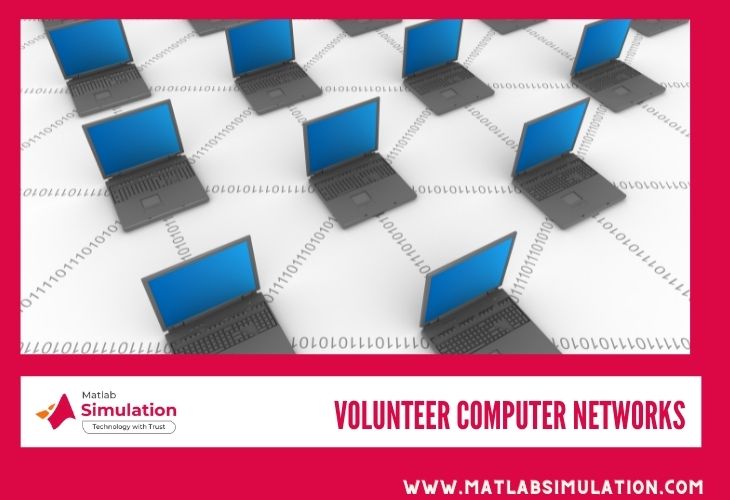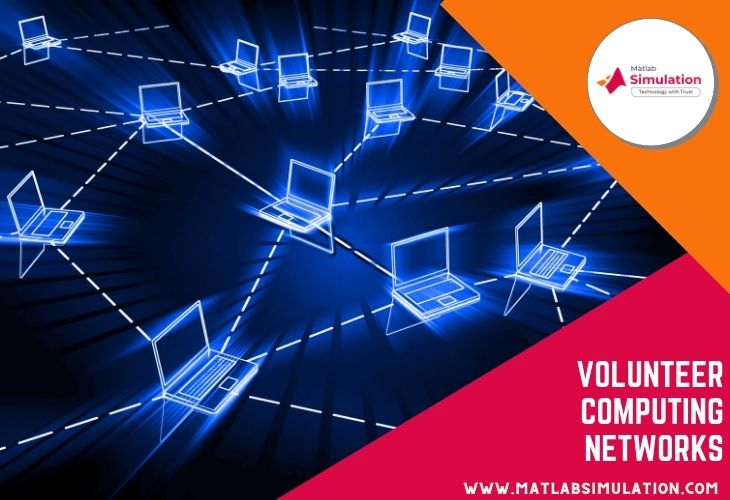Volunteer Computing Networks refers to a type of distributed processing that takes advantage of the spare computing power of volunteering elements. It provides a more cost-effective and environmentally friendly computing architecture to supplement specialized, centralized, and costly storage systems.
Outline of Volunteer Computing
Inactive computational resources spanning from personal computers to modems and smart Televisions are now being combined to offer far better computing infrastructure for computationally heavy applications like scientific simulations and advanced big data analytics. However, scientific applications remain dominant with the utilization of Volunteer Computing, with just a tiny percentage of possible volunteer terminals located for the resource provisioning of a large number of tasks.
Through this article, we are providing a complete explanation of volunteer computing networks. Let us first start with understanding the major features of volunteer computing,
Features of Volunteer Computing
- Resources sharing only to machines within the same platforms, resulting in homogeneous redundancies.
- By delivering resources to the device that request is satisfied. For instance, locality scheduling may be accomplished.
- Checking twice the servers reports the performance using prediction models or a custom validation approach after sending the identical work unit to at least two users.
- Even before the work unit is finalized, information from the work unit is trickled to the server.
- Work is distributed depending on host characteristics, with work units exceeding 512 MB of RAM being delivered exclusively to hosts with at least quite so much RAM, and we transmit additional tasks to multi-core CPUs and GPUs.
- Both the client and the server require job scheduling to ensure that different tasks meet their deadlines.
With all these useful features volunteer computing has turned to be one of the major areas of research and technology for everyday applications. By delivering more than four hundred research projects in volunteer computing, we are one of the highly experienced technical volunteer computing networks research supporters in the world. You can thus confidently reach out to us for your VC projects. Let us now look into the volunteer network attributes in brief below
What are the attributes of volunteer networks?
- Network and client hosts
- Availability, power, and reliability of the hosts
- Hosts execution and organization
- Servers, data servers, and tasks
- Accessing the disks and memory details
- Server scheduler and number of tasks
- Validation and details of the resources
Advanced protocols and customized algorithms and codes are utilized in volunteer computing to enhance its working. In order to overcome certain challenges associated with volunteer computing, our experts and engineers have been working in alliance with many prominent researchers in the field. So you can get in touch with all the field experts in volunteer computing once you reach out to us. Let us now look into the major goals of volunteer computing
Important Objectives of Volunteer Computing
- Find the optimum set of volunteers
- For all volunteers, heterogeneity must be satisfied
- Volunteers deployed and sharing resources under different workloads
You can easily connect with our experts and feel free to contact us at any time to get the details of the techniques and methods used in volunteer computing to establish these objectives.
We are here to supply you with all the essential requirements for your volunteer computing network design. As we will also give you the technical details starting from the very basics to highly advanced aspects needed for your research project. Let us now look into the important research areas in the field.
Key Research Areas in Volunteer Computing Networks
- Cloud computing and heterogeneous network models
- Internet of things and software-defined networking
- 5G, 6G, and Networks beyond 5G
There are also many more areas of research in volunteer computing networks that are under development today. We help you in selecting the best topic by analysing your interests and motivation. You can also get full support for any kind of novel idea from us. Let us now see the drawbacks of volunteer computer networks
Open Drawbacks of Volunteer Computing Networks
- Performance of the personal computer is reduced
- When the volunteer computing program is running while the computer is being used, it may have an influence on the machine’s efficiency.
- This is because the Processor, CPU caches, system storage, and wireless devices are all being used more.
- More disc cache failures and increased paging might occur if RAM is a concern.
- Volunteer computing programs are generally scheduled with less priority on the CPU, which significantly reduces CPU pressure.
- Enhanced power consumption
- When a CPU is operating, it consumes more power than when it is dormant.
- Furthermore, the volunteer’s willingness to engage could lead them to keep the computer on longer or deactivate power-saving options such as suspends.
- Additionally, if somehow the computer is unable to sufficiently cool itself, the extra stress on the volunteer’s Processor may lead to overheating.
Such consequences may not always be apparent, and that if they do, the volunteer can opt to fully participate. Nevertheless, the higher power consumption could be mitigated to a certain amount by enabling a setting in those software applications that limits the proportion of the CPU being used by the user. Our engineers have gained a lot of expertise in clearing the research issues associated with volunteer computing. In this regard latest discuss the research challenges in VC Networking
Research Challenges of Volunteer Computing Networks
- Identifying speedup growth rate convergence points
- Volunteer computing for big data process scalability confirmation is logarithm like and reciprocal inverse like for speed up and speed up growth rate respectively
- Synthesizing large-scale volunteer dynamics by compiling various factor profiles
- Studying the impact of dynamics synthesize over large overlay parts and tasks
- Proposing strategies for planning the optimal overlays size numbers structures for a certain number of dynamic volunteers and a particular problem
In addition to these, you may face certain concerns which are specific to the objectives and goals of your project. Connect with us and get more ideas on the working of volunteer computing network systems that are being developed to overcome the challenges stated above. Let us now look into the volunteer computing research ideas below
Research ideas in Volunteer Computing
- Resource Management
- Privacy and Security
- Task offloading and Scheduling
These are the major and recent volunteer computing research topics for which you will get in-depth research support rendered to you by highly qualified and professional experts. You can also talk to our experts to get your doubts solved. Our team is also ready to render you guidance on all novel ideas that you have. Let us now talk about the management of resources in volunteer computing
Resource management in volunteer computing
Research issues in Resource Management
- Resource provisioning – selection and discovery of resources
- Resource monitoring – utilization of resources
- Resource scheduling – allocation and mapping of resources
The following are various aspects of resource allocation which are considered to be important issues in Resource Management under volunteer computing
- Cost and power-aware resource allocation
- QoS and content-aware allocation of resources
- SLA based allocation of resources
Our experts are here to guide you on all the ways and means to optimally manage the resources in volunteer computing networks. Since we have the experience of working many years with researchers from all over the world we gained expertise in the field. Let us now discuss the research issues in task scheduling aspects of volunteer computing
Task scheduling in volunteer computing
Research issues in task scheduling
- Particular objectives specified by the users are achieved using task scheduling algorithms
- The objectives range from the cost to make span and also included a deadline, delay, response time, and many more quality of service parameters as requested by the users
Our team updates ourselves regularly so as to provide reliable and authentic information on advancements that are in place to handle these issues. The following are the various types of task scheduling in the volunteer computing mechanism
- Static and dynamic
- Preemptive and non-preemptive
- Centralised and distributed
- Meta-heuristic and heuristic
- Immediate and batch Mode
In order to overemphasise the importance of task Scheduling goals, the objectives of tasks scheduling are classified under the following heads by the experts
- Cost aspects
- Minimising cost and maximizing the profit
- Priority and Energy
- Time period
- Duration of delay, deadline, and makespan
- Minimising cost and maximizing the profit
- Multiple objectives
You can get full guidance from our experts on all these aspects. Primarily you should remind the following criteria in case of tasks scheduling
- Maximization
- Throughput and CPU utilization
- Minimization
- Waiting, response, and turnaround time
With proper simulation tools and appropriate software algorithms, the above objectives can be readily established. A volunteer computing network is one of the fields with immense scope for future research. Get in touch with our experts for writing research proposals and standard paper publication support in volunteer computer networks. Let us now see about task offloading and its issues
Task offloading in volunteer computing
Research issues in task offloading
- Offloading route
- Direct and indirect
- Destination
- Cloudlet and mobile cloud Computing
- Number of sites
- Single and multiple
- Offloading server
- Homogeneous and heterogeneous
- Availability of the channel
- Stochastic and deterministic
- Wireless sensor networks
- Third, fourth and fifth-generation
- Single and multiple AP
- Cloud RAN and cellular WLAN
- D2D and cellular networks
- Power management
- Static and dynamic (cloud and user sides)
- Renewable
With advanced practical explanations, we help you in perceiving all the technicalities of task offloading. The following schemes gain importance in task offloading
- Markov chain based and Decision process-based schemes
- Queuing model-based and hidden Markov model-based schemes
- Semi Markov chain based and Decision process-based schemes
Since we have got issues to experience in volunteer computer network research we are experts in providing you with reliable and proper solutions to all network issues and give detailed descriptions on all these schemes. For the robust and reliable mechanism related to task scheduling and offloading you can check out our website. Let us now see about the security aspects in volunteer computing
Security and privacy in volunteer computing
The following is a technical note on attacks and threats related to security, privacy, and trust in different procedures involved in volunteer computing
- Selection of workers and task assignment
- Security
- Uploading false personal data
- Sybil attacks
- Forging during worker selection
- Privacy
- Personal and task data privacy threats
- Trust
- Worker and SP trust issues
- Worker data sensing and processing
- Security
- Free ridding attack
- Privacy
- Data privacy threats
- Trust
- Worker and data trust-related threats
- Reporting data
- Security
- Reporting false data and tracking
- Sybil and impersonation attacks
- Privacy
- Personal information and data privacy issues
- Trust
- Problems in Worker and data trust
- Security and Privacy Data Processing
- Security
- DoS and DDoS attacks on single system party
- Privacy
- Personal information and data privacy threats
- Trust
- Worker, data, and SP trust issues
- Evaluating and managing trust
- Security
- Impersonation and Sybil attacks
- False personal data uploading
- Privacy
- Threats associated with personal information and data privacy
- Trust
- Data, Security and Privacy and Trust
Our research experts and developers have designed many extraordinary solutions to prevent the system from being disturbed by intrusions and attacks. The following are the important schemes in volunteer computing in order to ensure that your privacy is safeguarded and security are guaranteed
- Group and ring signature-based schemes
- Pseudonym based schemes
- Symmetric and asymmetric cryptographic methods
- Hybrid techniques
For the architecture of networks, topology, framework, and appropriate structures you can contact our technical experts at any time. We ensure to provide you with benchmark references and feasible solutions along with the best practices in volunteer computing. Let us now talk about the techniques in volunteer computing below
Volunteer Computing Techniques
The following are the important machine learning and volunteer computing based techniques that are utilized to enhance the quality of service parameters in distributed systems
- Deep learning and Machine Learning
- Reinforcement Learning and Regression Analysis
- Artificial Neural Networks
Deploying deep and machine learning methods and their suitability to volunteer computing systems is one of the important researches in the field these days. You can get any kind of research guidance for volunteer computer networks from us. Our developers will stand by you in the successful implementation of codes. Let us now look into the parameters used in analyzing the volunteer computer networks
What are the parameters used for volunteer computing?
- Quorum
- The minimal successful results needed by a validator is called quorum
- In the case of strict majority the parameter is considered accurate
- Size of the output file
- Output file size denotes the data amount sent by a client to the server after executing a task
- Size of the input file
- Input file size stands for the data that is uploaded for processing into the volunteer nodes
- Duration of tasks
- The total number of floating-point operations that are demanded for computing every task
Many such factors have to be considered for evaluating your volunteer computing networks project and choosing the best simulation tool for you. Our engineers will guide you by considering the demands of your project to choose the best methods, tools, and techniques. Let us now talk about the parameters used for analysing the performance of volunteer computer networks.
Performance analysis of volunteer computing
- Maximum error results
- Then the client error results exit the maximum value the work unit is established to contain errors
- Maximum successful results
- When the number of successful results is greater than this value without reaching a consensus then the work unit contains an error
- Maximum total results
- Then the number of user error results is greater than the maximum error result value the work unit consists of errors
- Target results
- Initial results to be created for a work unit
Finally to conclude on the optimal outcomes on all these performance metrics you can have a talk with our experts. We will provide you with the successful instances in which we have attempted to maximize the possible results in all these parameters. So contact us without hesitation at any time for your volunteer computing networks project.














